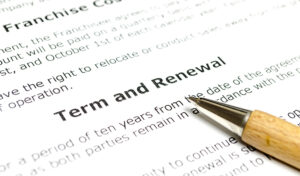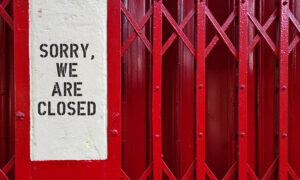A lease renewal is a common part of renting. It offers tenants and landlords a chance to continue the tenancy. If a tenant’s lease term will end soon, it’s important to know how the lease renewal process works. In doing so, you can avoid confusion and misunderstandings.
In this article:
What is a Lease Renewal?
A lease renewal is an agreement between the tenant and the landlord to renew the lease. It is essentially a new lease for the same property. A lease renewal extends the tenant’s stay but differs from a lease extension.
A lease renewal typically extends the lease for a fixed period. The renewal can have the same terms, or either party can choose to suggest revisions. Generally, a lease renewal occurs at the end of the original agreement, which lets both parties negotiate the terms and conditions if desired.
Upon lease renewal, tenants and landlords get a chance to make adjustments. Common adjustments include rent increases, payment schedule changes, and amendments to the rules. Before signing a new lease, ensure you are satisfied with the new terms. If neither you nor the other party agrees to the renewal or the terms, the extension can’t be pushed through.
Lease Renewal vs. Lease Extension
Many people confuse a lease renewal with a lease extension. While they share some similarities, they do have stark differences.
 Lease Renewal. A lease renewal is essentially a new contract. It may contain new terms or be the same as the previous agreement. With this, the original lease expires, and both parties enter a new one.
Lease Renewal. A lease renewal is essentially a new contract. It may contain new terms or be the same as the previous agreement. With this, the original lease expires, and both parties enter a new one.- Lease Extension. A lease extension, on the other hand, extends the existing lease. It doesn’t create a new contract. In this case, the terms and conditions of the original lease remain the same, including the rent and duration. Landlords and tenants typically prefer this option to keep things simple.
A lease renewal and a lease extension both extend the lease period. However, a lease renewal may contain new or amended terms, whereas a lease extension includes the same terms. A lease renewal involves signing a new contract, whereas a lease extension is usually an amendment added to the original lease.
Most landlords prefer a lease renewal with a rent increase to keep up with economic conditions. It is fairly common for renewals to include a rent increase, particularly in high-demand areas.
Tenants, though, may also negotiate a lease renewal with a discount if they want more favorable terms. Landlords should consider agreeing to the request for a discount if the tenant has been good, following all the rules, and paying rent on time.
What is the Lease Renewal Notice Period?
The lease renewal notice period is when a landlord must inform the tenant of their intent to renew or not renew the lease. Typically, the landlord provides this notice 30 to 60 days before the expiration of the lease. However, state and local laws may influence this. The terms of the original lease might also speak to the notice period.
For instance, in New York, landlords can incorporate an automatic renewal clause in the rental agreement. In this case, landlords must provide the tenant with advanced notice of the clause’s existence, between 15 and 30 days before the tenant informs the landlord of their intent not to renew.
Tenants must give notice if they wish to renew their lease. Landlords should typically ask for this notice in advance, typically by providing a deadline for tenants to inform them in writing. This is to avoid confusion and prevent the landlord from returning the property to the market. Tenants who have decided to renew must make sure to follow the terms of the lease.
What to Do When Landlord Never Sent Lease Renewal
 Landlords may forget or fail to send a lease renewal notice. If the end of the lease is imminent and the tenant hasn’t heard from the landlord, it’s best not to assume that the tenant can stay. Tenants must take the initiative and contact their landlord to inquire about their intentions.
Landlords may forget or fail to send a lease renewal notice. If the end of the lease is imminent and the tenant hasn’t heard from the landlord, it’s best not to assume that the tenant can stay. Tenants must take the initiative and contact their landlord to inquire about their intentions.
Some states have laws that require landlords to send lease renewal notices within a specific period. If the landlord doesn’t send one, it’s important to check the local tenant laws to see what actions can be taken. In the meantime, tenants can ask their landlord whether they plan to offer a renewal and if there will be any changes to the lease terms.
On the landlord’s part, it’s essential to set a reminder before the end of the lease. It’s possible to forget, especially when the landlord has multiple properties and tenants. To avoid violating landlord-tenant laws and keep tenants happy, landlords should strive to remember sending a lease renewal before the lease expires.
Do I Need Proof of Income to Renew Apartment Lease?
Landlords can have requirements for tenants when renewing apartment leases. Some ask for the tenant’s updated proof of income during the lease renewal process. This assures that the tenant will still be able to pay the rent. It’s a more common practice in areas where rents are rising. It’s also good practice if the landlord is considering a rent increase.
When tenants can no longer afford the rent, they must inform the landlord about the situation. Landlords have the option to still agree to renew the lease at a lower rent price. This usually happens if the tenant has a good history and relationship with their landlord. However, landlords may ask for additional security from their tenants, such as a co-signer.
How to Renew Rental Agreement
The process of renewing the rental agreement usually starts with the landlord sending the lease renewal to the tenant. This form outlines the terms of the renewal, including any changes in rent or other rules. Both landlords and tenants should carefully review the form to ensure that they agree with all the new conditions.
After reviewing the terms, tenants can sign the lease renewal form and return it to the landlord before the deadline. It’s good practice for landlords to provide their tenants with a copy of the signed renewal. This helps resolve any disputes that may arise later.
What Does a Lease Renewal Agreement Include?
A lease renewal contract includes key details about the new lease period. Here are the contents of a lease renewal agreement:
- Property description
- Lease duration
- Rent amount
- Payment schedule
- Maintenance and repair obligations
- Updates to rules and regulations (such as pet policies, parking rules, guests, utility costs, etc.)
- Termination and renewal terms
Landlords should make sure that these details are in the contract before handing it over to their tenants. After both parties sign the contract, they agree to the new terms. As such, it may be difficult to make a change later on if there is something missing.
What Happens With a Non-Renewal of Lease?
 If either the landlord or tenant decides not to renew the lease, the tenancy will come to an end at the expiration date. This is called a non-renewal of lease. The landlord is also typically required to provide the tenant with a written notice in advance. This notice period matches the lease renewal notice period, giving the tenant time to make other arrangements.
If either the landlord or tenant decides not to renew the lease, the tenancy will come to an end at the expiration date. This is called a non-renewal of lease. The landlord is also typically required to provide the tenant with a written notice in advance. This notice period matches the lease renewal notice period, giving the tenant time to make other arrangements.
After the lease is not renewed, the landlord expects the tenant to vacate the property. If the tenant doesn’t leave by the specified date, the landlord could start eviction proceedings. Alternatively, if both parties agree, the tenant could switch to a month-to-month tenancy. However, this will depend on the tenant’s specific situation and local rental laws.
For All Landlords and Tenants
A lease renewal is a critical tool in the landlord-tenant relationship. It extends the lease period while updating the rent, terms, and duration. As a landlord, it’s imperative to understand the process of renewing a lease to save time and stress.
A property management company can help landlords navigate the ins and outs of lease renewals. Start looking for the best one in your area using our online directory!
RELATED ARTICLES:
- A Guide For Landlords On How To Make A Rental Contract
- 12 Most Important Rental Forms For Every Landlord
- Tenant Screening 101: How To Get Good Tenants For Your Rental Property




 Company
Company